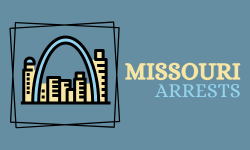Reporting Police Misconduct
Reporting Police Misconduct involves the critical process of bringing to light any unethical or illegal actions carried out by law enforcement officials. It is essential for maintaining transparency and accountability within the criminal justice system. By reporting instances of police misconduct, individuals contribute to upholding the integrity of law enforcement and ensuring that officers adhere to established protocols and ethical standards.
When reporting police misconduct, individuals have the opportunity to advocate for justice and fairness in their communities. By shedding light on any wrongful behavior or abuse of power, they play a vital role in promoting trust and cooperation between law enforcement agencies and the public. Reporting police misconduct is a fundamental step towards fostering a safer and more equitable society for all individuals.
Importance of Reporting Police Misconduct
Reporting police misconduct is crucial in maintaining the integrity and trust within law enforcement agencies. By shedding light on instances of officer misconduct, the public can hold law enforcement accountable for their actions, ensuring transparency and fairness in the justice system.
Upholding Transparency and Accountability
One of the primary reasons for reporting police misconduct is to uphold transparency and accountability within law enforcement agencies. By bringing attention to cases of officer misconduct, internal investigations can be conducted to address any violations of policies or codes of conduct.
Contribution to Law Enforcement Integrity
Reporting police misconduct contributes to the overall integrity of law enforcement agencies. It sends a clear message that unethical behavior will not be tolerated and helps maintain the public’s trust in the police force.
Advocating for Justice in Communities
Reporting police misconduct is essential for advocating for justice in communities. It ensures that all individuals are treated fairly and justly under the law, regardless of their background or circumstances.
Promoting Trust between Public and Law Enforcement
By reporting instances of police misconduct, the relationship between the public and law enforcement can be strengthened. Transparency and accountability foster trust and confidence in the police force, leading to a safer and more harmonious community.
Fostering a Safer and Equitable Society
Ultimately, reporting police misconduct plays a vital role in fostering a safer and more equitable society for all individuals. It ensures that law enforcement agencies operate with integrity and fairness, leading to a more just and cohesive community.
Frequently Asked Questions
Our Frequently Asked Questions section aims to provide comprehensive information on Reporting Police Misconduct, addressing common queries and concerns that individuals may have. Below, you will find detailed explanations for each FAQ to enhance your understanding of this important topic.
What is considered police misconduct?
Police misconduct refers to inappropriate or illegal actions taken by law enforcement officers, including but not limited to excessive use of force, racial profiling, corruption, and falsifying evidence. It is essential to hold officers accountable for their actions to maintain trust and integrity within the community.
How can I report police misconduct?
If you have witnessed or experienced police misconduct, you can report it to the internal affairs division of the police department, the civilian complaint review board, or a local oversight agency. It is crucial to provide as much detail and evidence as possible to support your complaint and ensure a thorough investigation.
What safeguards exist for whistleblowers exposing police misconduct?
Whistleblowers who report police misconduct are protected by laws that prohibit retaliation, such as the Whistleblower Protection Act. These laws safeguard individuals from adverse actions taken against them for speaking out against misconduct, encouraging transparency and accountability within law enforcement agencies.
What are the consequences of not reporting police misconduct?
Failing to report police misconduct can perpetuate a culture of impunity within law enforcement, allowing abusive behavior to go unchecked and undermining public trust in the police. By reporting misconduct, individuals contribute to the accountability and professionalism of the police force, promoting justice and fairness in the community.
How are investigations into police misconduct conducted?
Investigations into police misconduct vary depending on the jurisdiction and the nature of the complaint. Internal affairs divisions, oversight agencies, or independent investigators may conduct inquiries, gathering evidence, interviewing witnesses, and analyzing relevant information to determine the validity of the allegations. It is essential for investigations to be thorough, impartial, and transparent to ensure accountability and justice.
What help exists for those impacted by police misconduct?
Individuals who have experienced police misconduct can seek support from organizations such as civil rights groups, legal aid clinics, or victim advocacy agencies. These resources offer guidance, legal assistance, and emotional support to individuals navigating the aftermath of misconduct, empowering them to seek justice and accountability.







